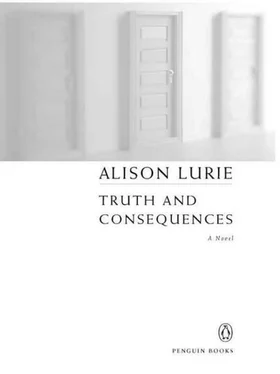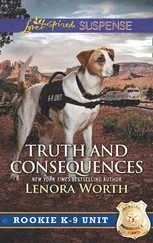“So how will she manage?”
“She’ll manage. One way or another. You’ve got to remember, she’s famous now. Seven years ago, when we met, she was only starting to be well-known, it was different. Anyhow, back then I was still writing and publishing. We were going to become famous together, that was her idea. Her delusion.” He laughed harshly. “Now I think she’d like a really successful husband. Somebody like that Wally Hersh, the trustee she was so sweet to at the dinner for L. D. Zimmern.”
“But Delia wouldn’t marry someone like that,” Jane exclaimed. “I mean, Wally Hersh is old, he must be well over sixty. And he’s so funny-looking. Lily Unger says he looks like a giant hamster.”
“But he loves literature; I heard him say so twice.” Henry smiled. “And he’s rich. If Delia married him she would never have to worry about money again. She could hire help to drive and shop and cook and run errands. Right now she has to find people like me or Selma who will do it for nothing.”
“It’s not just Selma. Everyone at the Center does things for her.”
“Yeah, I know.” Henry smiled sourly. He’s thinking of what Alan has done for her, Jane thought—we both are.
“You’ll be going to North Carolina too,” she said, realizing this for the first time and feeling as if she had received a blow just above the heart.
“I don’t think so.” He shook his head.
“No?” In spite of herself, Jane felt joy—foolish, of course, because what difference could it make to her?
“No. I mean, maybe I should. I understand what Delia’s been through, I know how frightened she gets sometimes when she’s alone. I have a lot of sympathy for her, but I don’t want to live with her anymore.”
Jane caught her breath. “You don’t?” she echoed, forgetting for a moment that even if Henry were free now, she wasn’t.
“No. And I think she doesn’t want it either. She’s not comfortable being with someone who doesn’t worship her, doesn’t believe in her absolutely. I try not to let it show, but she knows, and it brings her down.”
“It’s the same with Alan,” Jane said. “I keep trying, but I don’t believe in his art. And I don’t believe in him. I asked him not to see Delia alone again, but it’s still happening. I’m almost sure of it. When I was outside her office just now I heard all this shuffling and breathing inside. I think he’s in there with her right now.”
“Really.” Henry did not look surprised or disturbed.
“Don’t you care?” Jane stared at him.
“No. I guess I don’t, not anymore. Do you?”
“Yes. It’s so insulting, for one thing. I mean, here we are, and right over our heads something’s going on, whatever it is. Maybe they’re only talking. I don’t know. But still—” Jane gasped.
“I see what you mean.”
“It’s like he doesn’t care what I know or what I feel, not really.”
“Yeah. That’s what it’s like.” He smiled, but Jane did not smile back.
“You’re leaving too,” she said, looking at Henry and realizing how awful that would be, how important it had been that she could still see him at the Tuesday lectures and the Thursday lunches, even if they could never speak privately.
“I don’t know—it depends—” He stumbled over the words.
“On what?”
“You, mostly.”
“Me?” Feeling dizzy, Jane subsided onto the window seat. “How?”
“I’d stay here if I could be with you. Otherwise, it’ll be the worst place in the world.” He stared at her.
Jane met his glance briefly, then looked away. “I don’t—I can’t—” she cried.
“I suppose that’s understandable,” Henry said. “Alan’s going to have great success as an artist, Delia tells me. It’s already started. He’ll make a lot of money too. You don’t want to be involved with a failure.”
“It’s not that, not that at all,” Jane said, her voice shaking. “I don’t care about that.”
“No. I believe you don’t,” Henry said slowly. “It’s something else, then. I guess probably you don’t love me enough.”
“No, no,” Jane cried, choking up. “I love you too much, that’s what’s so awful. I can’t help it. But I’m married to Alan, I can’t leave him when he’s so ill. I’ll blame myself and everybody will blame me—”
“I see. You still want to look good. But is it worth it?”
“It’s not—I don’t—” Jane was unable to speak.
“Here’s your tea,” Susie announced, coming into the room. “Oh, hello, Henry. Would you like a cup of tea? There’s some nice raisin cookies too, left over from lunch.”
“No thank you, I’m just going,” Henry said. “So, Jane, you let me know what you decide,” he added in a strained, neutral tone. “Give me a call by Friday morning, okay?”
“Okay,” Jane echoed weakly.
“That’s funny,” Susie said as the front door closed heavily behind him. “Henry always loves tea and cookies. What’s the matter with him today?”
Jane swallowed, which somehow made her chest hurt terribly. “I have no idea,” she lied.
EIGHTEEN
Four days later, on a cold dark morning, Alan Mackenzie was on his way to the drugstore to renew a prescription for his current favorite painkiller. In spite of the errand and the weather, his mood was good. He was in only moderate pain, and his impetuous two-day trip to New York had been a success. Not only had he avoided Thanksgiving dinner with Jane’s family, he had visited the Metropolitan Museum for the first time in over two years. He had also seen Jacky Herbert, who had professed to be “very keen” on the drawings for the new Doors and Windows constructions, and had spoken of a show the coming autumn. Jacky was also still negotiating with the “important collector” who might want Alan to design and supervise the building of a ruined tower on his Connecticut estate.
Flush with the checks Jacky had sent earlier,Alan had stayed in an East Side hotel rather than in his friends’ cramped guest room on Morningside Drive. With the help of his new toilet-seat-concealing briefcase, he had managed planes, taxis, and restaurants with only intermittent serious pain. He had also seen Delia. She had come to his hotel for tea, and presently lain half-naked on his king-size bed, eating room-service tea sandwiches and drinking champagne, exclaiming over his drawings.
“This one, with the half-open window and the thin blowing curtains, no wonder Jacky loved it, it’s so strange and melancholy and beautiful,” she had cried. “I want to use it for the cover of my next book of poems. If you’ll let me.” She smiled.
“I’d be honored,” Alan had said, bending to kiss her in an especially sensitive place.
“Oh yes,” she had murmured. “Oh, love.”
Back home after Thanksgiving, life was less agreeable. Jane remained sullen and suspicious: she resented his absence from her parents’ Thanksgiving dinner, and appeared to silently doubt his assurance that he had not gone to New York to see Delia, even though it was more or less true: the meeting with Delia had been a lucky accident, since Jacky had known where she was staying.
Alan knew he should be grateful to Jane, and he was grateful. But he didn’t, he somehow couldn’t, go beyond that, not anymore. They were supposed to be working on their marriage, but it was uphill work, and he was getting more and more worn out. Anyhow, love shouldn’t be work. As Delia had written in a poem, it should be play and passion and joy.
Once he had loved Jane, Alan remembered; once he had thought her beautiful. But now she seemed small and thin and slight, conventional both in appearance and attitude. “People can change so much,” Delia had said, speaking about her own marriage to a professor at the Southern college she had gone to, “and then sometimes they aren’t right for each other anymore. It’s nobody’s fault.”
Читать дальше







![Кэмерон Доки - Правда и ее последствия[Truth and Consequences]](/books/79610/kemeron-doki-pravda-i-ee-posledstviya-truth-and-con-thumb.webp)




